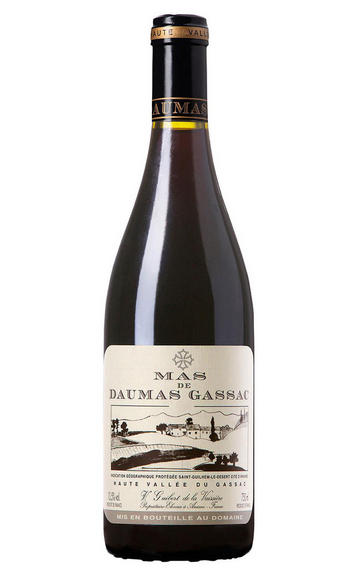
About this WINE
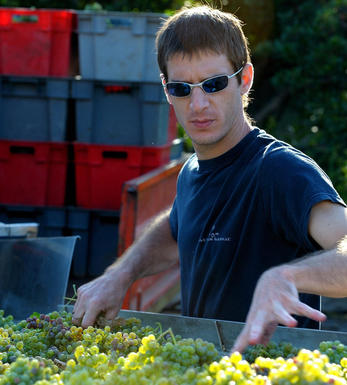
Mas de Daumas Gassac
Famously described as the ‘First Growth of the Languedoc’, Mas De Daumas Gassac remains unique in the region.
The world-famous red is an intriguing blend of Cabernet Sauvignon along with a mix of indigenous and more unusual varieties from the south of France, such as Grenache, Cinsualt and Tempranillo. Mas De Daumas Gassac Blanc is a similarly fascinating blend of grape varieties, with Chardonnay and Viognier taking centre stage. Lauded across the wine world, not for nothing is this Domaine named the Lafite of the Languedoc.
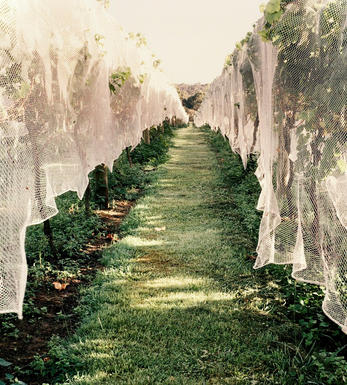
VdP de l'Herault
Hérault is a Vin de Pays (Départementaux) French wine appellation, that encompasses vineyard area from the eponymous Hérault department in the region of Languedoc-Roussillon. Hérault is surrounded by the departments of Aude, Tarn, Aveyron, Gard, and the Mediterranean sea on the south.
The reputation of Hérault received its biggest boost by the success of the wine domaine Mas de Daumas Gassac, located to the north of Montpellier. Aimé Guibert, the founder of the domaine, planted an eccentric mixture of vines on fine, volcanic soil that was identified by oneologist Emile Peynaud to be capable of producing wines of Cru standard.
Plots of lands like this are rare in Hérault, but the ever-improving wine-making and the proliferation of international varieties deliver wines of excellent quality that compare very well with the DO appellation wines nearby. Syrah, Cab. Sauvignon, Merlot, Grenache are the dominant red wine grapes, while Sauvignon Blanc, Chardonnay, Marsanne and Viogner are the main white varietals.
Recommended Producers:
Mas de Daumas Gassac, Mas Conscience
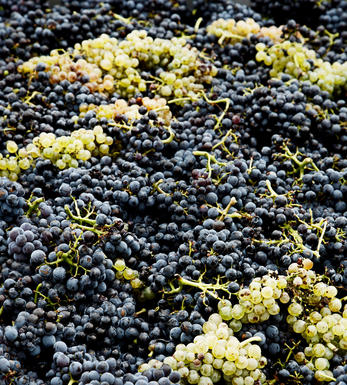
Other Varieties
There are over 200 different grape varieties used in modern wine making (from a total of over 1000). Most lesser known blends and varieties are traditional to specific parts of the world.


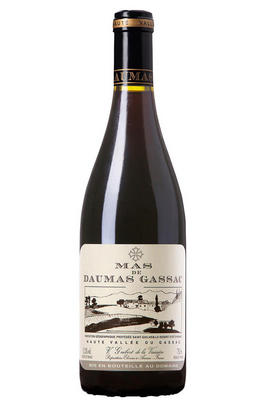
Buying options
Add to wishlist
Description
2009 was hot in the middle of summer, but the Gassac water-table had been well nourished in the Spring and the vines did not have to struggle too much. The Guiberts, pre et fils, have no hesitation in lauding the wine as a worthy companion, when mature, to the 2000, the 1988 and the legendary 1978. Why? Because the conditions allowed ripe fruit and soft tannins whilst not for a moment forsaking the virtues of balance, structure and length. Small grapes with thick skins are reliable qualitative precursors, it seems.
The Cabernet dominates, as always, with the supporting cast made up of Malbec, Syrah, Cabernet Franc, Tannat, Pinot Noir, Nebbiolo, Dolcetto and Tempranillo to name but a few. The undulating vineyard is protected by scrub and garrigue, both informing the distinctive taste and adding a real sense of place. The Cabernet is quite reticent at the moment, its tannins primes inter pares.. the latent fruit character will emerge triumphantly after bottling and slowly but surely come into its own. Peonies, wild berries, sousbois and spice (the wine has seen 16 months of new barrique) are the dominant notes at present; but the precise descriptors will evolve as much as the wine over time, taking on even greater complexity and harmony.
(Simon Field MW, BBR Buyer)
wine at a glance
Delivery and quality guarantee